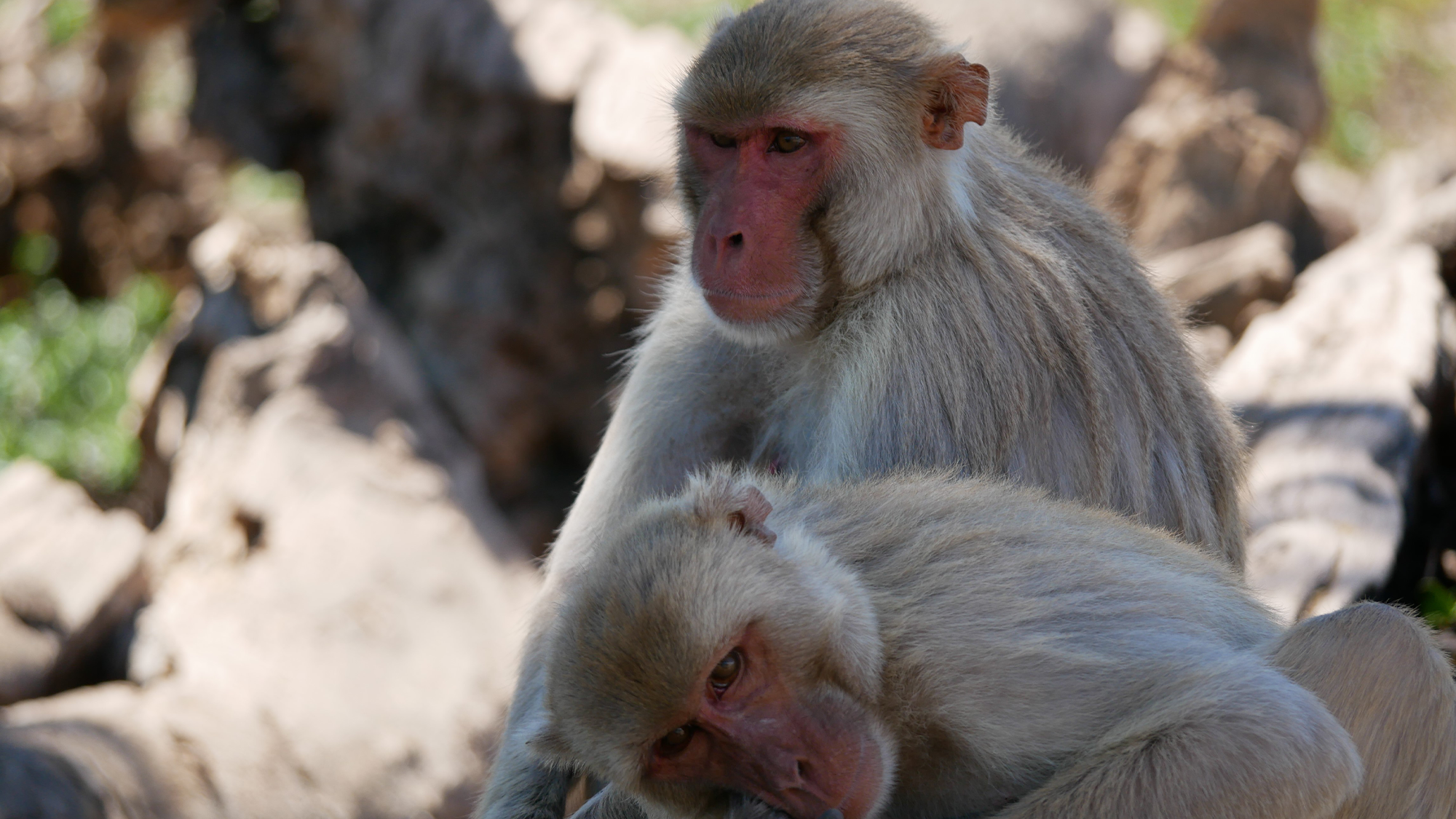

Same-sex sexual behavior has been documented in over 1,000 animal species—from nematode worms to penguins to cattle. While few animals are exclusively homosexual across the animal kingdom, same-sex sexual interactions are more common than once believed and are potentially beneficial evolutionarily. For one population of male macaques, same-sex sexual behavior has evolved with—and may be a common feature of—reproductions in primates, according to the results of a study published July 10 in the journal Nature Ecology and Evolution.
[Related: Why do some animals engage in same-sex sexual behavior? The better question is… why not?]
“We found most males were behaviourally bisexual, and that variation in same-sex activity was heritable,” co-author and Imperial College London ecologist Jackson Clive said in a statement. “This means that the behavior can have an evolutionary underpinning; for example, we also found that males that mounted each other were also more likely to back each other up in conflicts—perhaps this could be one of many social benefits to same-sex sexual activity.”
In the study, the team examined 236 males within a colony of 1,700 rhesus macaques living freely on the island of Cayo Santiago, Puerto Rico. In addition to observing their behavior, the team conducted genetic analyses and had access to pedigree records. These records detail the parentage of each individual money back to 1956.
The team recorded all social ‘mountings’ for all of the 236 males, including different-sex behavior (DSB, or male-on-female) and same-sex behavior (SSB, or male-on-males). Male same-sex mounting occurred in 72 percent of sample males, compared to only 46 percent of the male population participating in different-sex mounting.
Some theories about SSB in animals believe that it has to do with establishing dominance within groups, handling a shortage of different-sex partners, or reducing tension following aggressive behavior.
The study team investigated several of these prevailing theories and found that SSB with males was strongly correlated with “coalitionary bonds” in this community. This means that the male pairs that regularly engage in SSB were more likely to support one another in conflicts and provide an advantage within the social group.
When the team looked to see if SSB led to any reduction in offspring, they found that the males engaged in SSB may actually be more successful in reproducing. This could be due to those social benefits provided by more coalitionary bonds.
Using the pedigree data, they found that SSB was 6.4 percent inheritable, showing evidence of a genetic link to primate SSB outside of humans. This percentage is similar to other heritable behaviors in primates including grooming and sociality.
[Related: Super semen could be one reason why primates evolved to masturbate.]
They also found some genetic correlation between the males that were more often ‘mounters’ or ‘mountees’ when engaging in SSB. This suggests that these sub-behaviours may have a common basis. Additionally, whether or not individuals were more likely to be mounters or mountees did not correlate with their social position, according to the authors. They believe that asserting their place within the hierarchy is not an important factor for SSB in this species.
The study suggests that some degree of SSB can evolve as an adaptive behavior, depending on the context, and may be a common feature or reproductive ecology in primates.
“Unfortunately there is still a belief amongst some people that same-sex behavior is ‘unnatural,’ and some countries sadly still enforce the death penalty for homosexuality,” co-author and Imperial College London biologist Vincent Savolainen said in a statement. “Our research shows that same-sex behavior is in fact widespread amongst non-human animals.
